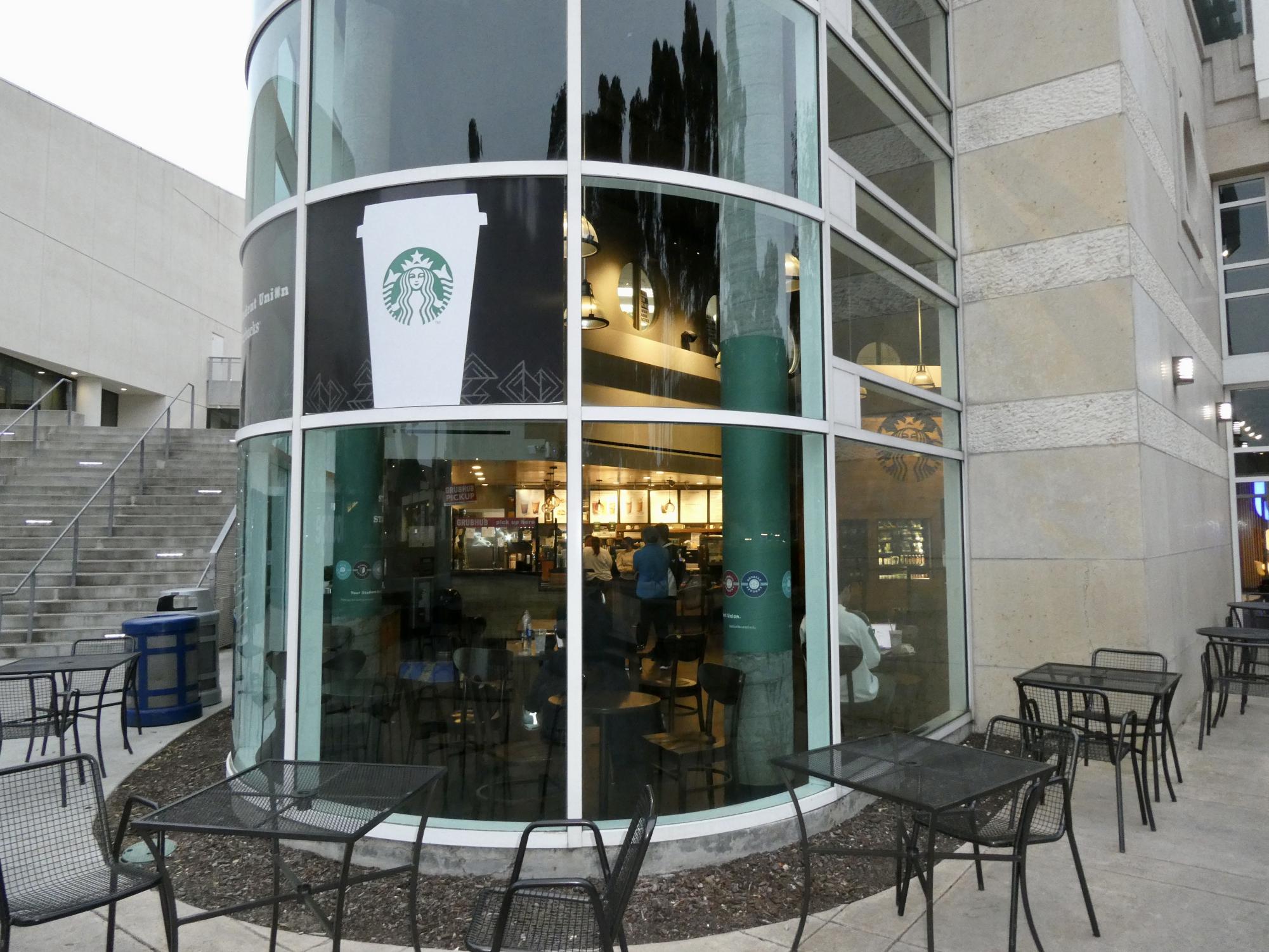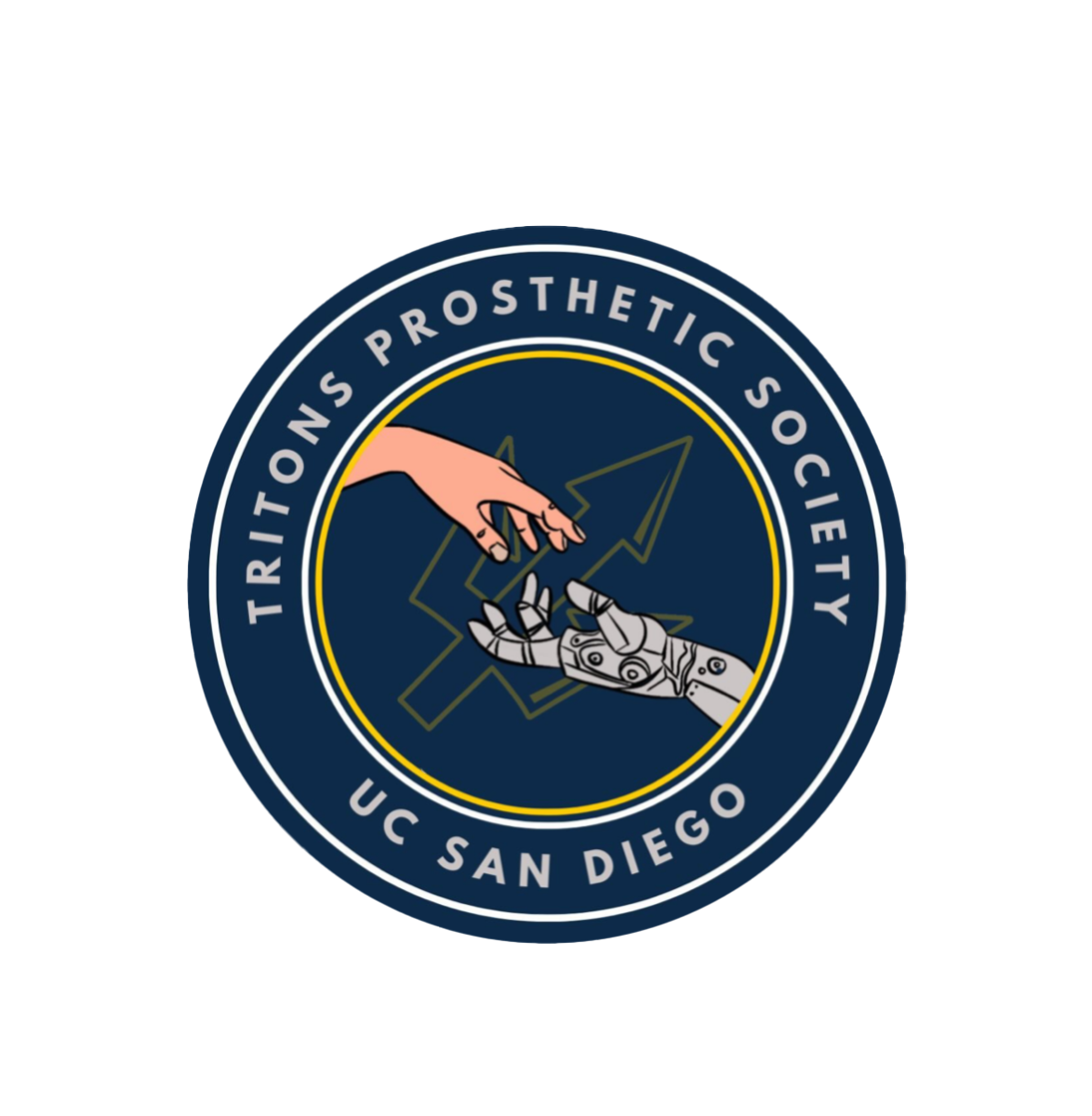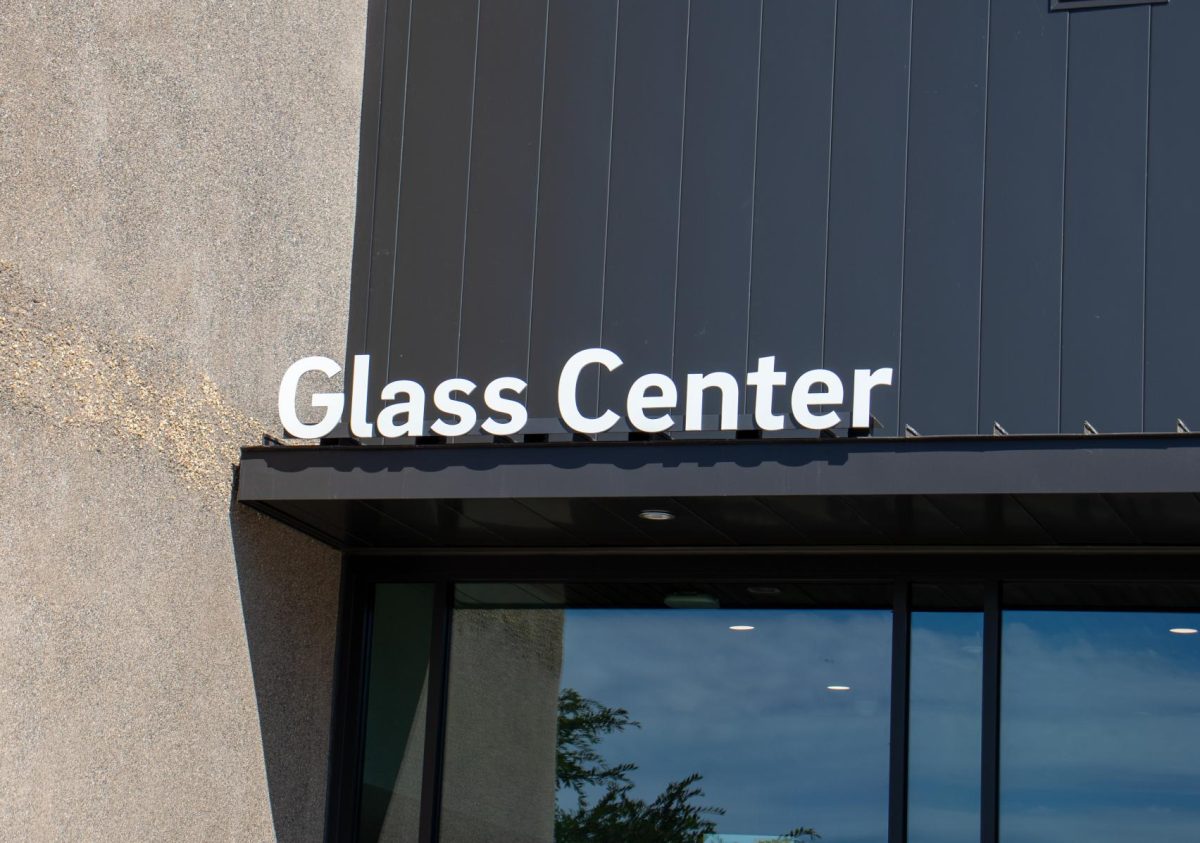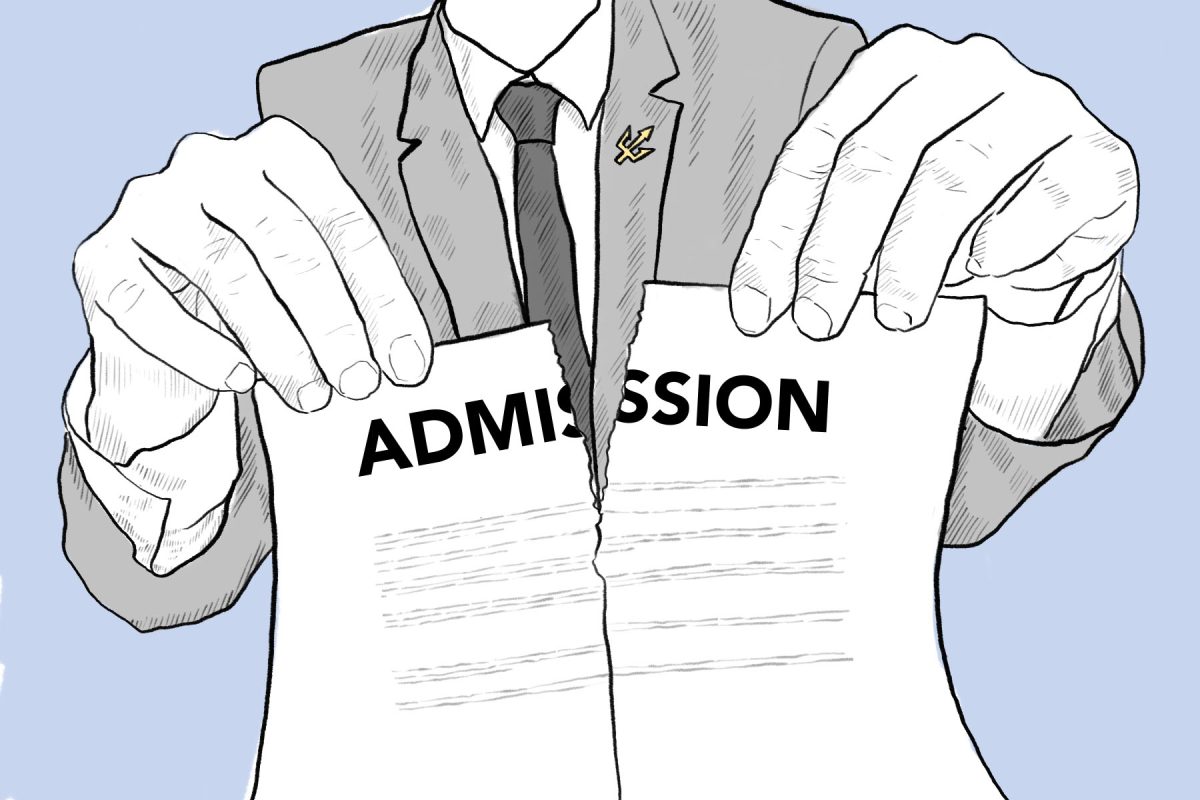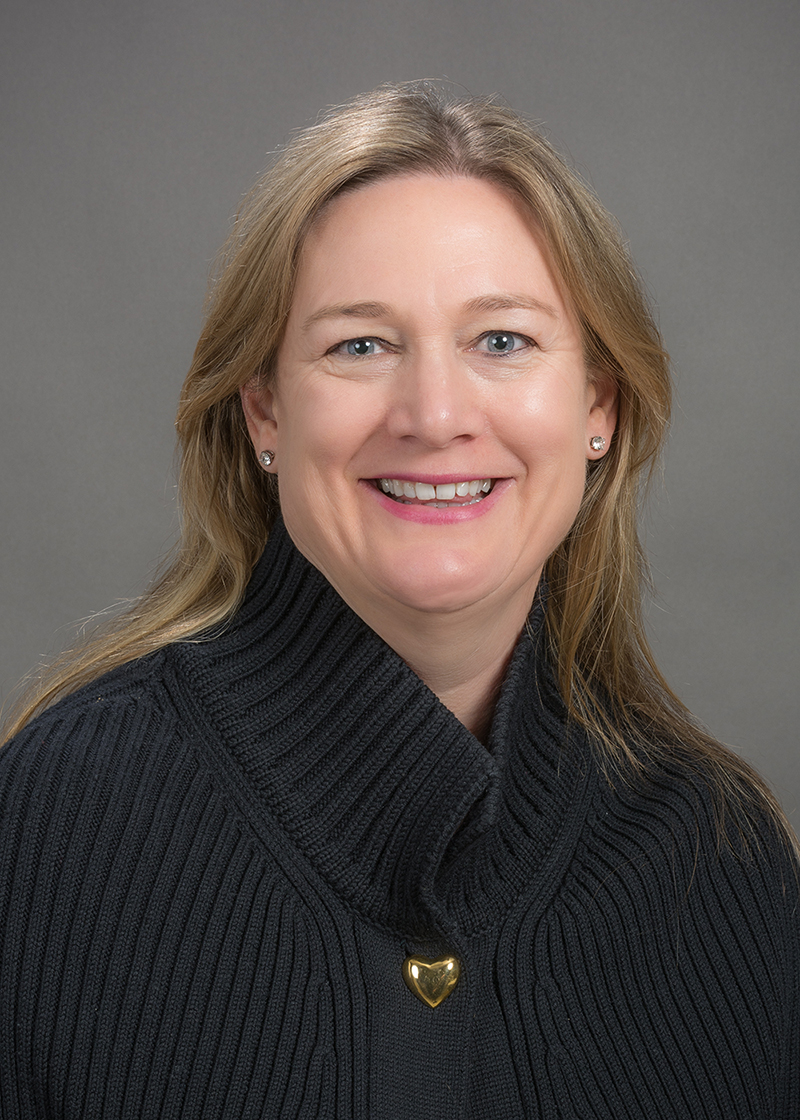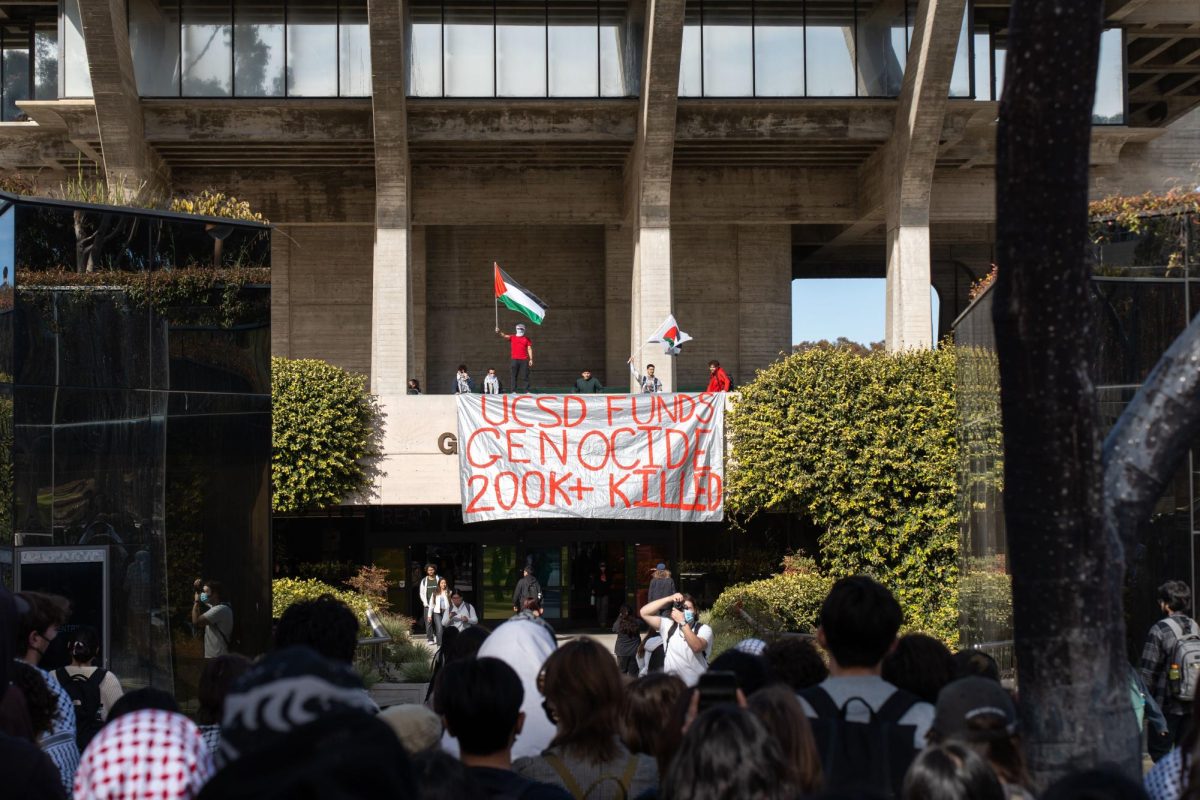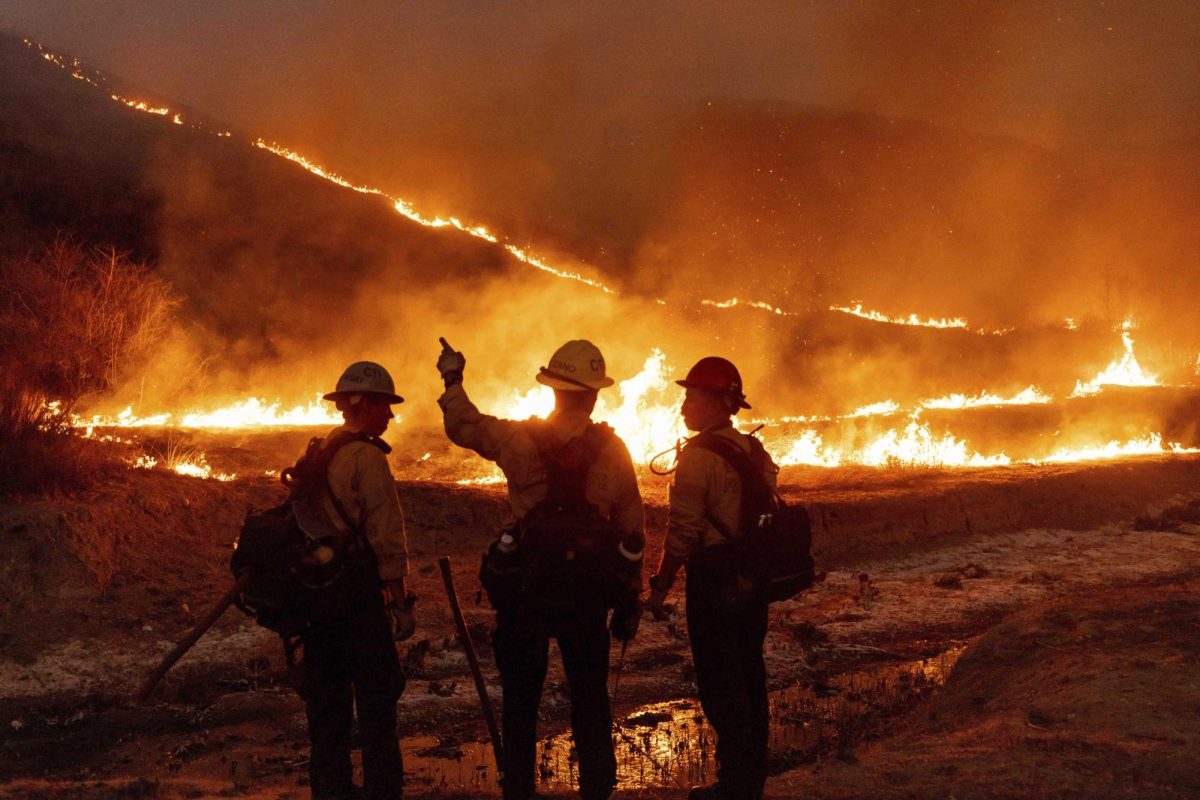There is no doubt that organized labor is experiencing a resurgence in the United States. From the recent auto workers’ strike, which disrupted production at three major car manufacturers, to unionization drives at previously non-union companies like Amazon, labor unions are expanding into new sectors of the economy and taking bolder action in the sectors where they are already established. UCSD caught a glimpse of this in 2022 with the weeks-long strike by graduate students and student workers.
But even since the grad student strike, campus labor activism has expanded dramatically — and it’s not just grad students who are joining in. As Starbucks faces a challenge from a new employee union, Starbucks Workers United, UCSD students are bringing the fight to Starbucks on campus.
Starbucks Workers United has managed to unionize 400 Starbucks locations across the US, with over 10,000 unionized workers. Among the unionized Starbucks stores are three San Diego County locations: Encinitas, Hillcrest, and National City. Starbucks has clamped down hard on SBWU’s activities; in Ithaca, New York, where the unionization drive began, multiple stores shut down after their employees formed unions.
Students at Cornell University, which is located in Ithaca, responded to Starbucks’s anti-union activities by launching a campaign to kick Starbucks off their campus. Since the employees of campus Starbucks locations are technically employed by their university rather than Starbucks itself, student employees would not lose their jobs if the campus store were to close. Organizers promoted this strategy as a means of harming Starbucks’s profits without harming workers.
The campaign soon spread beyond Cornell, with organizers contacting students at universities across the country. Activists at UCSD joined the effort last year. Local 619 of the United Students Against Sweatshops, a national pro-labor student organization, teamed up with SBWU to urge UCSD to divest from Starbucks. UCSD USAS and SBWU launched the Red Cup Rebellion in November of last year, which coincided with Starbucks’s own nationwide Red Cup Day promotional campaign.
On Red Cup Day, Starbucks’s single biggest day for sales, activists distributed flyers and pamphlets at the Starbucks in Price Center and coordinated a calling campaign, flooding Starbucks’s complaint line with demands to address understaffing and other union grievances. The USAS-SBWU pamphlets cited Starbucks’s “rampant union busting” as the reason why UCSD should close the campus Starbucks and replace it with an alternative coffee vendor. Also on Red Cup Day, SBWU members went on strike at unionized Starbucks locations across the country, including the Hillcrest and Encinitas stores.
Francis Galang, a PhD student and an organizer with USAS, says that actions like ejecting Starbucks from campus are an important way of convincing the company to acquiesce to its workers’ demands.
“This transition towards the service economy and towards a platformized economy presents many, many organizational challenges that require attention,” Galang said. “Organizing within Starbucks, it’s the question of how to gain legitimacy in the eyes of Starbucks, especially when they’re fighting you so much. The way to do so, in our case, is by bringing the community onboard, saying ‘the community is not okay with rampant union busting.’” This, according to Galang and the other organizers with USAS and SBWU, is where the UCSD community comes in.
“The goal is to get students directly aware of labor organizing and the power it has,” Galang added. “I get the sense that a lot of students are looking for hope, especially having been undergraduate students who experienced the pandemic … If the thing that people want to do in their work is actually make a change, labor organizing is a place for that.”
Galang further states that labor organizing can help break down the divide between the campus and the wider community that exists in so many college towns.
“College campuses are a key site because they — especially UCSD’s campus — are this entity that is encroaching upon the city, and bringing in so many people to the city without wider reflection on its impact. Bringing people into labor connects people authentically with what the work life of San Diego is like,” Galang said.
Starbucks’s reputation as a “progressive” employer has also proved a challenge. Over the years, Starbucks has put a great deal of effort into cultivating the image that they care about their workers. But Galang and SBWU argue that these efforts ring hollow. Citing examples like Starbucks’s recent lawsuit against SBWU, which argued that the latter’s pro-Palestine stance associates the company with terrorism, organizers claim that Starbucks does not allow its employees to express themselves freely even in a private capacity.
Organizers also cite chronic understaffing as a problem, which the company’s executives refuse to address; they say that having less workers do more work is better for the company’s bottom line, even if it is worse for workers. Moreover, they say that Starbucks’s retaliatory union-busting tactics, including closing stores that have unionized, are designed to deter Starbucks employees from taking advantage of their legally-guaranteed rights to collective bargaining. Organizers at SBWU and USAS argue that Starbucks’s progressive branding becomes hypocritical in light of these facts.
Nonetheless, Galang says that the recent Starbucks-related campaigns are only the beginning of a broader effort to build worker power at UCSD. He cited the recent unionization of dining hall staff at UC Santa Barbara as a project that organizers at UCSD would like to pursue. USAS has also planned a number of events intended to recruit and train new labor organizers, including an “Organizer Bootcamp” scheduled for Feb. 10.
Galang says that he is optimistic about the future of labor organizing at UCSD.
“There was a time when I was alive and younger, when there just were not movements happening,” he said. “Realizing that everything is in crisis and everything needs action right now puts movements on the ground. Hopeless times are when things are bad and there’s nothing to do. But I find this to be a very hopeful time when people can just plug into a movement and get something done for their surroundings, and be involved in the change that needs to happen in the world.”
Editors note: Starbucks representatives have reached out to dispute claims about retaliation against union groups, and this article has been edited accordingly.



